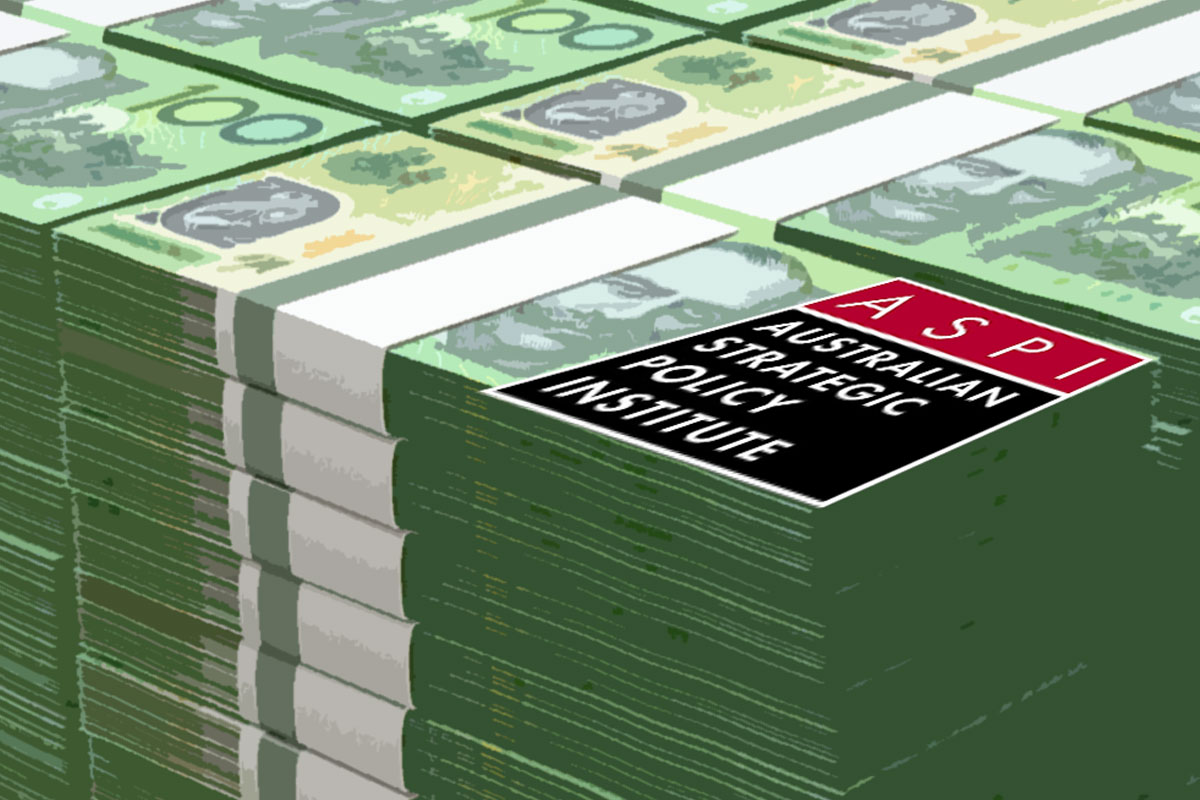When a review of Commonwealth funding of “strategic policy work”, together with the government’s response, was released just before Christmas, the howls from associates of the Australian Strategic Policy Institute were probably audible on the Moon.
A former director of ASPI, Peter Jennings, was among the first out of the blocks with an article in The Australian newspaper brimming with dudgeon. Jennings was touched up in the review report because it said that as director he had “over-reached” and “veered into partisan commentary” out of line with ASPI’s “non-partisan charter” to the “detriment” of its “reputation”.
Jennings didn’t refute these findings, saying it was “better to over-reach than under-reach”, while claiming “a friend” reckoned his writing was “piquant”.
So what’s to be made of this sampler from Jennings’s note on the funding review? He describes as “a hit job” to “kill ASPI”, one that will “help the government shut down informed and independent commentary”. He says that the “idea that a think tank should offer ‘contestability’ of policy advice is dead in Canberra” and that “the bureaucracy” and the government are happy “to let the Institute die a slow death from strangulation.” And all this in the face of Jennings’s unevidenced claim that ASPI research “on China changed policy thinking in Washington DC, London, Tokyo and elsewhere…”.
It would surely take a “friend” to see tendentious, hyperbolic guff of this calibre as “piquant”.
The Australian allowed the former Secretary of the Department of Foreign Affairs and Trade, Peter Varghese, who conducted the funding review, to respond to Jennings’s objections; he put them pretty much in the shithouse.
Then the former Deputy Prime Minister and ASPI Council member, John Anderson, is reported as describing the government’s acceptance of Varghese’s recommendations as “appearing to cave in to Beijing’s demands” and that the government has given itself “the ability to nobble ASPI’s work.” Anderson is threatening to quit the ASPI Council which, on the basis of his comments, would be an incalculable blow, to put it ambiguously.
The current executive director of ASPI, Justin Bassi, is rending his garments about Varghese’s recommendation to cease government funding of its Washington office. Without addressing the reasons for Varghese’s recommendation, Bassi snorts that it is “surprising, disappointing and a misjudgment”. Perhaps there’s a compromise here: How about setting up an ASPI outpost in Beijing?
Finally, Elizabeth Buchanan a senior fellow at ASPI with a big downer on what she calls “groupthink”, lines up with her colleagues to echo the complaints of Jennings, Anderson and Bassi. She fears, without apparent logic, that her organisation may have had “a target on its back” because 14 of Varghese’s recommendations refer to ASPI. To minimise the damage, Buchanan suggests that Gina Rinehart “gift strategic policy research funds to examine the character of our strategic culture”. But it may be unlikely Rinehart would dip into her pockets for ASPI, say, to maintain its Washington office because she’s hell-bent on reducing the size of the public sector, not augmenting it.
In sum, it’s hard not to see the agitations of the ASPI associates to the Varghese review as being a thin-skinned example of “groupthink” verging on paranoia. Less generously, they misrepresent Varghese’s careful, balanced report, a trait it is to be hoped associates do not bring to their strategic analyses. Still, the sober fact remains that the government’s acceptance of Varghese’s recommendations should strengthen ASPI, although with a qualification.
Unusually for a Commonwealth government body, ASPI is set up as a company in which, presumably, the government holds all the shares. Goodness knows what legal obligations this sets up although in other worlds companies have a fundamental obligation primarily to serve the interests of shareholders. If that were to translate to ASPI, it would require it to serve the interests of the government of the day, a notion that sits awkwardly with the idea of an independent organisation analysing strategic conditions without fear or favour.
Moreover, around 30% of ASPI’s funding is provided by the Department of Defence and another 30% by other Commonwealth organisations. Thus, if ASPI churns out analyses that make life awkward for these authorities or overseas governments and arms manufacturers and other sponsors, might there be a chance that the funds could be wound back, and might that affect what ASPI says?
Varghese considered the company status of ASPI and saw “no compelling reason to change”.
The Productivity Commission and its predecessor organisations, the Industries Assistance Commission and the Tariff Board, have been in the business of independent, public analysis of economic policy for many years. They were established as statutory authorities by Acts of Parliament that specified their roles and independence. They were funded by Parliament, rather than by the grace and favour of departments, and their boards were appointed through appropriate processes. And they were required to account to Parliament through annual reports and consideration of their budgets in estimates committees. That is to say, they were on a more secure, independent and accountable footing than a government-owned company and this contributed significantly to the notable contributions they made to economic policy.
There’s a lesson here: If the case remains for the Commonwealth to maintain an organisation like ASPI to provide quality independent strategic analysis, there are good reasons for that function to be performed by a legislated statutory authority funded by and accountable to Parliament and not the unusual arrangement of a company in which the government holds the shares.
For more on this topic, P&I recommends:
Paddy Gourley is a superannuated Commonwealth public servant.
